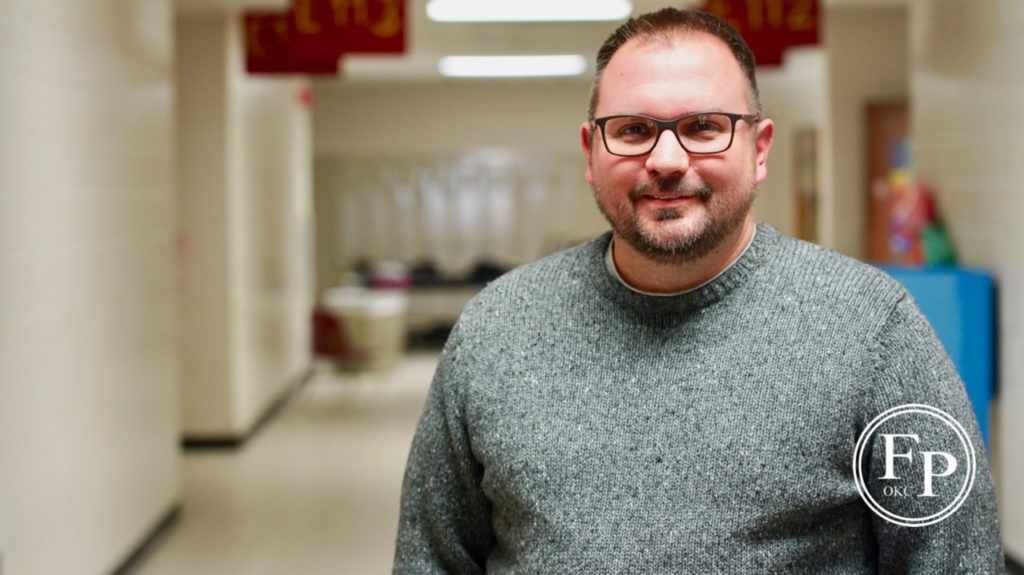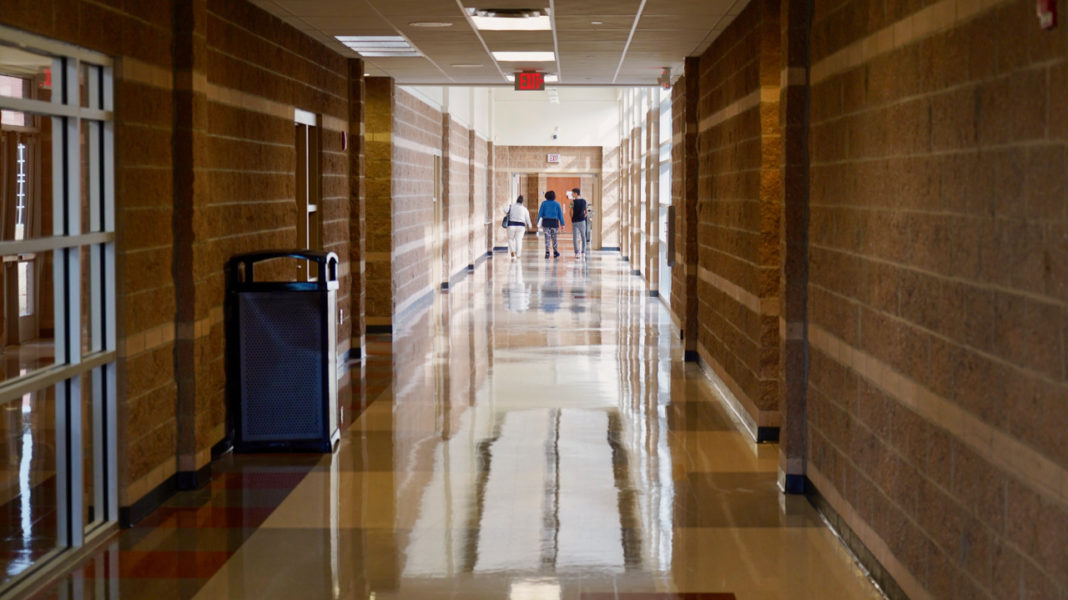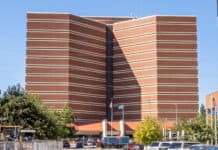Last Updated on June 22, 2022, 4:19 PM | Published: June 22, 2022
Aaron Baker is a high school social studies teacher in Oklahoma City, Oklahoma. He is also a musician, Mennonite, husband, and father of three. Aaron provides this community voices opinion piece to contribute to public discourse in Oklahoma City and beyond.
OKLAHOMA CITY (Free Press) OPINION — There was a time in Oklahoma when political indoctrination in public school classrooms was a systemic problem.
This was a time when particular political ideologies were seen as part and parcel of the educational goals of the entire U.S. public school system. It was a time when students were not given the opportunity to question de facto ways of thinking about such issues as human relationships, religion, and international relations.
In Oklahoma, the governor, a majority of state legislators, and many other state leaders believe that time is now. Nothing could be further from the truth.

The truth is that students in Oklahoma in 2022 have more opportunity to think for themselves and form their own political ideas than at any previous time in state history. Gone are the days of strict classroom roles where teachers only speak and students only listen, where students only have questions and teachers only have answers.
Today’s public school classrooms are more democratic than they have ever been! And with increased democracy comes increased student voice. And when student voices are elevated, indoctrination becomes not only next to impossible, but more importantly, irrelevant.
The cry against “woke teachers” and the manufactured debate over Critical Race Theory in classrooms and textbooks is, in truth, an assault on students’ ability to think for themselves and direct the path of their own learning.
To be clear, when politicians (and, by proxy, angry parents at school board meetings) direct education policy to censor and/or place limits on what can be taught, discussed, or read at school, what they are really doing is attacking the exercise of democracy in the classroom. What they really want is a return to the teaching of certain political myths from the “good ‘ole days” when indoctrination went unchecked because students were not given space to think critically.
Here are four myths, largely absent in Oklahoma classrooms in 2022, that Governor Kevin Stitt, Secretary of Education Ryan Walters, Representative Kevin West, and many other elected and appointed leaders would very much like to see returned to Oklahoma classrooms.
Myth number 1
The United States is the greatest country in the history of the world.
This myth is derived from a concept known as “American Exceptionalism,” the idea that the United States is globally and historically unique (read superior). It is an absolute statement that does not resonate at all with 21st century students’ relativistic ways of understanding truth.
It is distinct from nationalism, the idea of pride in one’s own country.
American exceptionalism is a nationalism that denies the legitimacy of all other expressions of nationalism outside the United States. It is an idea that is not part of any Oklahoma social studies standards and, though it may make a veiled appearance, is not likely to be explicitly espoused by textbooks in 2022.
Fortunately, our globally connected world makes it difficult for even the most traditional teacher in Oklahoma to sell students the idea that the United States is the greatest country in the history of the world.
Myth number 2
In the United States, being cisgender and heterosexual is “normal.”
In the 2022 legislative session, the Oklahoma Senate and House of Representatives attacked 2SLGBTQ+ students like never before. An unsuccessful push for an educational voucher system was argued as necessary to combat “LGBTism” in our schools.
A fantastic “woke mob” was concocted to divert attention from the reality of a lost culture war. Queer representation is on the rise in all aspects of U.S. culture: movies, television, social media, and news media. Cishet (cisgender heterosexual) normativity, while still dominant, is on the decline nationwide. Educators are not the architects of this cultural movement. Schools and classrooms are merely responding to the evolving needs of student demographics, demographics which are increasingly queer with each new school year.
Students are not being indoctrinated at school with 2SLGBTQ+ ideas. Students are driving queer visibility and are often educating uninformed teachers and administrators.
Myth number 3
The United States has progressed to the level of a post-racial society.
This calculated reframing of history was seized upon following the election of Barack Obama, the first black President of the United States, in 2008.
Indeed, in late 2008 and early 2009, there was a brief collective sigh of relief and a momentary nationwide feeling of racial progress.
But the murder of Trayvon Martin in 2012 and the police killings of Michael Brown and Eric Garner in 2014 sparked the Black Lives Matter movement and demonstrated, in keeping with all of U.S. history, what Dr. Ibram X. Kendi describes as racial progress quickly followed by racist progress.
The anger over the possibility of Critical Race Theory being discussed in classrooms is, in reality, a pining for that fleeting feeling that as a nation, we have once and for all figured out the race issue (hint: We have not).
HB1775 in Oklahoma is not about Critical Race Theory at all. HB1775 is a misguided racist attempt to mandate that teachers present race and racism only as past tense occurrences that have absolutely no lasting impact on life today.
Myth number 4
The United States is a Christian nation.
Never are so many elected leaders eager to disregard the U.S. Constitution than when discussing the relationship between religion and public education. Though the issue is evolving with the forthcoming ruling in Kennedy v. Bremerton School District, there still remains a healthy reluctance in most public schools to promote any one religion over another.
Not so in both chambers of the Oklahoma Legislature. Upon visiting the Oklahoma Capitol, teachers and students are appalled to have a Christian prayer thrust upon them from the podium by the “Chaplain of the Day” as they watch from the gallery. Students have difficulty imagining the absurdity of a Christian prayer over the intercom during morning announcements at school. Yet this is exactly the kind of practice to which many elected leaders would like public schools to return.
The real indoctrinators
Those who want Oklahoma classrooms to promote “America First,” hatred toward queer students, color blindness, and “God in schools” are the real indoctrinators.
There is nothing to fear from increased student voice.
Further legislative attempts in Oklahoma to censor libraries, restrict teaching, silence students, and return to the indoctrination of the above myths will only serve to embolden students toward speaking louder, thinking more critically, and demanding a seat at the table in the democratic process.
Our Community Voices opinion section is for people in the community to submit reasoned and well-written opinion for the sake of advancing public discourse. If you live in Oklahoma and would like to submit a piece for us to consider publishing, please write to info (at) freepressokc (dot) com.
Free Press from time to time invites or accepts opinions written by persons who are not in our organization but are known to us in the community or state. If you would like to write an opinion for us, please write to info (at) freepressokc.com.









